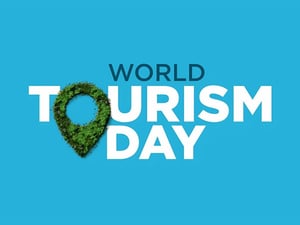Jordan is solidifying its status as the Middle East and North Africa (MENA) region’s leading medical tourism destination, recording a remarkable rise in patient arrivals seeking both advanced medical care and natural therapeutic treatments.
During the first seven months of 2025, the country witnessed a record increase in medical tourist arrivals, building on steady growth over the past three years.
In 2024, over 224,000 medical tourists visited Jordan — up from 202,592 in 2023 and 191,532 in 2022 — demonstrating consistent upward momentum.
The growth is powered by two major factors: An expanding range of specialized healthcare services, supported by a highly skilled medical workforce, and the country’s natural healing environments like the Dead Sea and Ma’in Hot Springs.

A booming global industry
Jordan’s growth in medical tourism comes amid a global surge in demand for cross-border healthcare. The global medical tourism market, valued at $31.23 – 41.79 billion in 2024, is projected to reach over $160 billion by 2032.
The MENA region, particularly GCC countries, has traditionally been a major source of outbound medical travelers. Kuwait sends around 650 patients per month abroad, incurring $1 billion annually, while Saudi Arabia’s Health Ministry reported 2,400 patients treated overseas, costing $800 million.
Jordan’s ability to attract these outbound patients has transformed the country into a regional hub for inbound medical tourism, generating over $1 billion in annual revenue, which contributes approximately 4 percent to Jordan’s GDP.
“Our medical tourism sector has a legacy that dates back to the 1970s, when Jordan emerged as one of the top destinations for medical care in the region. The sector is continuing to demonstrate exceptional growth as a preferred therapeutic destination both regionally and globally,” said Dr. Abdelrazzak Arabiyat, managing director of the Jordan Tourism Board.
“The growth in medical tourism is primarily driven by the world-class healthcare services that our hospitals offer, the popularity of the natural therapeutic sites and the renowned hospitality of our country.
“What sets the country’s medical tourism sector apart are the cost-effective yet high quality care assured within the country and the diverse natural attractions that add to the well-being of the patients and those who accompany them,” Dr. Arabiyat added.
Record-breaking visitor numbers in 2025
In just the first quarter of 2025, Jordan welcomed 51,448 medical tourists, which rose to 92,776 by the end of May, marking a 16.5 percent increase compared to the same period last year. The country is on track to surpass previous records and set a new benchmark for its healthcare tourism sector.
Jordan continues to attract patients primarily from Iraq, Saudi Arabia, Palestine, Syria, Yemen, Libya, and other GCC countries, drawn by the nation’s quality healthcare, affordability, and cultural proximity.

World-class healthcare at competitive prices
Jordan’s medical care offers substantial cost advantages. Treatments are estimated to be 25 percent to 40 percent cheaper than in the US and Europe, and 5 percent to 10 percent lower than in medical tourism leaders like India, Singapore, and Thailand.
The country boasts over 120 hospitals and medical centers, including 71 private and 47 public institutions. Many of these are internationally accredited by bodies such as the Joint Commission International (JCI) and the Health Care Accreditation Council (HCAC), assuring high standards of care and patient safety.
Advanced medical capabilities and historic milestones
Jordan has been a medical pioneer in the region, performing the first open-heart surgery in 1970 and the first kidney transplant in 1972.
The King Hussein Cancer Center (KHCC) remains one of the region’s most advanced oncology institutions, completing 250 bone marrow transplants in 2022 with a success rate of over 85 percent, matching international benchmarks.
Top hospitals attracting medical tourists include:
- Jordan Hospital
- Specialty Hospital
- Abdali Hospital
- Al-Kindi Hospital
- Ibn Al-Haytham Hospital
- Arab Medical Center
- King Hussein Cancer Center
In the public sector, leading institutions include Royal Medical Services (Medical City) and Al-Bashir Hospital.
The country’s medical workforce exceeds 30,000 professionals, many of whom are Western-educated and board-certified, offering services in specialties like cardiology, oncology, orthopedics, and fertility.
Short waiting times and the widespread use of English among medical professionals further enhance patient confidence and comfort.
Natural therapeutic destinations
Complementing Jordan’s medical infrastructure are unique natural healing sites that support patient recovery:
Dead Sea: The lowest point on Earth (400 meters below sea level), offering mineral-rich waters with 33 percent salt content known for treating skin, joint, and respiratory conditions.
Ma’in Hot Springs: Featuring thermal waterfalls up to 60°C, known for benefits in treating skin disorders, arthritis, and circulatory issues.
These natural resources offer a distinctive recovery experience that combines modern medicine with ancient therapeutic traditions.

Strong economic contribution
Medical tourism is a significant pillar of Jordan’s economy, not only generating over $1 billion annually but also creating thousands of jobs and supporting related sectors such as hospitality, transport, and translation services.
Medical tourists are estimated to spend 3 to 5 times more than leisure travelers due to longer stays and broader service needs. Jordan’s well-developed hospitality infrastructure, with accommodation options, patient transport, and multilingual support, ensures a smooth experience for international patients and their companions.
“The diversity of medical specialties available in Jordan, combined with our natural therapeutic destinations and skilled healthcare professionals, has created a strong and sustainable medical tourism ecosystem,” Dr Arabiyat said.
“Over the years, we have been focused on promoting our strengths in medical tourism through targeted digital ad campaigns, promotional videos and FAM trips for media and medical delegations, all contributing to the popularity of the country for world-class medical care.”
As demand for global healthcare options grows, Jordan is well-positioned to lead the MENA region in offering high-quality, affordable, and holistic medical care.
Backed by robust infrastructure, medical expertise, and natural therapeutic advantages, the country continues to elevate its reputation as a premier global medical tourism destination.








